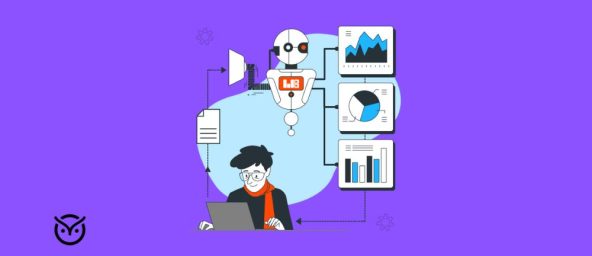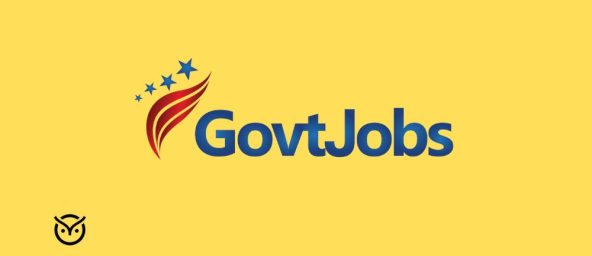
TL:DR
- Talent acquisition managers shape every part of hiring from sourcing to onboarding.
- TA managers design hiring plans and guide teams with simple steps.
- Talent assessment platforms help with skill checks and early screens.
- AI tools support faster planning and cleaner communication.
- TA managers work closely with hiring managers to keep hiring steady and fair.
Many companies lose strong candidates because their hiring steps feel slow and confusing. Job posts stay unclear. Interviews stretch for weeks. Teams struggle to explain what a talent leader or manager does on a daily basis. When the process feels messy, candidates lose trust and walk away.
Teams can fix this by understanding the key roles of talent acquisition managers and giving them the tools to guide each step. When TA managers lead with clear plans, simple workflows, and the right technology, hiring feels smoother for both the team and the candidate.
What a Talent Acquisition Manager Actually Does
People often ask what do talent acquisition managers do because the job covers many moving parts. A TA manager handles the full journey from finding the right talent to shaping the early steps of onboarding. They make sure each step feels safe, fair, and steady.
To keep it simple, what is a talent acquisition manager? They are the leader who builds the plan, shape the hiring experience, and guide the company toward better talent decisions. They look at data, performance, job needs, and skills gaps. Then they design hiring steps to match these needs.
A report shared that companies with structured hiring plans experience higher retention and faster productivity among new hires.
Core Responsibilities of a Talent Acquisition Manager
Here are the main tasks that shape the key roles of talent acquisition managers in hiring:
1. Building hiring strategies
TA managers design the hiring roadmap. They study team needs, job targets, and future growth patterns. They match these insights with a simple plan that everyone can follow. This keeps the process predictable.
2. Writing clear job messages
Many teams struggle with unclear job posts. TA managers fix this by writing clean job messages that explain the skills, tasks, and goals of the role. This helps applicants understand if they fit the job before applying.
3. Sourcing talent
TA managers choose where to find the right people. They use job boards, social sites, internal networks, and community groups. They guide the company on how to reach the right talent pools in a simple and effective way.
4. Organizing interviews
One of the major Key Roles of Talent Acquisition Managers is planning interviews. This includes building interview steps, scheduling conversations, selecting interviewers, and making sure questions stay fair.
5. Strengthening candidate experience
Candidates want steady updates and clear instructions. TA managers keep communication simple so people know what to expect next. Better communication leads to better trust.
6. Watching hiring data
TA managers track time to hire, retention patterns, offer declines, and hiring bottlenecks. This helps teams make better decisions with real insight instead of guesswork.
7. Supporting onboarding
This part often surprises people who ask what does a talent acquisition manager do. TA managers help shape the early steps of onboarding. They make sure the new hire feels supported on day one.
A report found that strong onboarding can improve new hire retention by 82 percent and productivity by more than 70 percent.
How Talent Assessment Platforms Support TA Managers
TA managers often depend on talent assessment platforms to make early steps easier. These platforms check skills in a clean and unbiased way. They help evaluate what the candidate can do instead of relying on guesses or long resume reviews. Some teams even explore deeper evaluation methods, such as AI-based skill testing tools, which help TA managers compare candidates more clearly.
Here is how these platforms support the key roles of talent acquisition managers:
1. Faster skill insights
Talent assessment platforms show what the person can do through short tasks or quizzes. This reduces time spent on early screens.
2. Fair scoring
These platforms use the same rules for everyone. This supports fairness and reduces accidental bias.
3. Better planning
When TA managers see clear skill data, they match candidates to the right roles more easily.
4. Stronger hiring decisions
Early assessments give hiring managers and TA managers clearer insight during the interview stage. This becomes even smoother when hiring managers use consistent evaluation steps, similar to approaches such as structured assessment-focused hiring practices.
5. Clean documentation
Assessment results stay saved and organized. This supports compliance checks and consistent decision making.
These tools help TA managers focus on the human side of hiring while technology handles the heavy early steps.
Collaboration Between TA Managers and Hiring Managers
A major part of the Key Roles of Talent Acquisition Managers is guiding hiring managers. Many companies struggle because hiring managers do not follow a unified system. TA managers fix this by building a simple bridge between the two roles.
Some teams study patterns similar to how headhunters locate strong candidates, which helps them refine sourcing plans.
How TA managers support hiring managers
- They explain the job clearly
- They help identify skill gaps
- They guide interviewers on question structure
- They keep communication steady
- They prevent delays that cause candidate drop off
Strong teamwork matters because candidates judge a company based on how smooth the hiring experience feels. When TA managers and hiring managers work together, the process becomes clean and professional.
The Shift Toward AI-Driven Talent Acquisition
Many companies want hiring to move faster without lowering quality. This is where AI becomes useful. The rise of AI tools has shaped new key roles of talent acquisition managers because TA managers now decide how and when AI should be used.
A report from PwC showed that 67 percent of leaders believe AI will help reduce repetitive tasks and let teams focus on deeper human work.
Here is how AI supports TA managers:
1. AI improves early screening
AI reviews resumes and highlights skills that match the job. This helps TA managers focus on high-value candidates instead of sorting through stacks of resumes.
2. AI strengthens interview planning
AI scheduling tools help organize interviews and send friendly reminders. This avoids situations where candidates wait too long.
3. AI supports candidate questions
Simple AI chat tools answer candidate questions about timing, role details, and next steps. This reduces confusion and keeps engagement high.
4. AI helps with planning and prediction
By looking at previous hiring data, AI tools show which sourcing channels work best and which steps slow down hiring.
5. AI keeps workflows clean
AI helps TA managers build a smooth hiring flow so fewer steps fall through the cracks.
Conclusion
Talent acquisition managers shape the entire hiring journey. They plan hiring goals, guide sourcing, structure interviews, support onboarding, and keep communication simple. They also work closely with hiring managers to create a clean and consistent experience for candidates.
With talent assessment platforms and AI tools, TA managers can reduce manual work and focus on strategy. When companies understand what a talent acquisition manager truly does, they build stronger systems that attract better talent. A smooth hiring process improves candidate trust and helps employees stay longer.
FAQs
Q1. How is TA different from recruitment?
TA focuses on long-term talent planning while recruitment focuses on filling current roles.
Q2. Do TA managers use AI tools?
Yes. AI tools help with screening, scheduling, sourcing, and communication.
Q3. Are TA managers involved in onboarding?
Yes. They help shape the early steps to ensure the new hire feels supported.
Q4. Do TA managers make the final hiring decision?
No. Hiring managers make the final call while TA managers guide and support the process.




